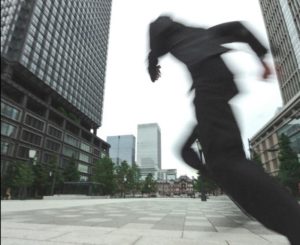“kusukusu” vs. “niyaniya”:Do You Know How We Use These?
What is the difference between “くすくす(kusukusu) and にやにや(niyaniya)”? Which is used as the meaning of “laugh out”?After reading this, you would be answering this question. Let me introduce what their subtle differences are and how you correctly use them such as native speakers today!
くすくす笑う(kusukusu warau)
Giggle / 嘻嘻笑 / 킥킥 / Cười khúc khích
“くすくす笑う(kusukusu warau)” means “Giggle” and which has been used as the meaning of “to laugh repeatedly in a quiet but uncontrolled way”. The basic ways to use it are that “___は/がくすくす笑う。(___ giggle.)”, etc. For instance, “子供は/がくすくす笑う。(Children giggle.)”, “友達は/がくすくす笑う。(My friends giggle.)”, etc. The tips for using it are that “くすくす笑う” is used as the meaning of “TO LAUGH OUT”, unlike “ニヤニヤする”. Everyone could use “くすくす笑う” as casual, polite and formal such as “子供は/がくすくす笑ってるよ。(Children are giggling.) as casual and “子供は/がくすくす笑っています。(Children are giggling.)” as polite and formal. Furthermore, “くすくす笑う” is used for both a good and bad meaning unlike “ニヤニヤする”.
\ Learn Japanese language online with a personal native teacher!/
Sample
妹がテレビを見てよくクスクス笑ってるの。草 (My sister is often giggling while watching TV. hehe) (我妹妹经常看电视的时候总是笑嘻嘻的。哈哈) (여동생이 TV 보면서 계속 킥킥거려 ㅋㅋ) (Em gái tôi thường cười khúc khích khi xem ti vi. Haha) (imōto ga terebi wo mite yoku kusukusu waratteru no. kusa)


クスクス笑わないでくれますか?気分悪いです。 (Please don’t giggle, you make me feel uncomfortable.) (你不要这样笑眯眯的行吗?真令人不爽。) (킥킥 웃지 말아 줄래요? 기분 나쁩니다.) (Bạn có thể đừng cười khúc khích có được không? Tôi cảm thấy rất khó chịu.) (kusukusu warawa naide kuremasu ka? kibun warui desu.)


さっきクスクス笑っている人を見ました。気持ち悪かったです。 (I saw a smirking guy a while ago. He’s gross.) (我刚才看到一个在笑眯眯的人,感觉好恶心。) (아까 킥킥 웃고 있던 사람 봤습니다. 기분이 나빴어요.) (Vừa nãy tôi đã nhìn thấy một người đang cười khúc khích.Tôi đã cảm thấy thật khó chịu.) (sakki kusukusu waratte iru hito wo mimashita. kimochi warukatta desu.)


何クスクス笑ってるの?思い出し笑い? (What are you giggling? You just remembered something funny?) (你干嘛在笑嘻嘻的?想起什么笑起来了吗?) (왜 킥킥 웃는 거야? 뭔가 떠올랐어?) (Cậu đang cười khúc khích cái gì đấy? Đang nhớ lại chuyện gì rồi cười đấy hả?) (nani kusukusu waratteru no? omoidashi warai?)
ニヤニヤする(niyaniya suru)
Smirk / 嬉皮笑脸 / 히죽히죽 / Cười khẩy
“ニヤニヤ(niyaniya suru)” means “Smirk” and which have been used as the meaning of “to smile in an unpleasant way”. The basic ways to use it are that “___はニヤニヤする。(___ smirks.)”, etc. For instance, “彼はニヤニヤする。(He smirks.)”, “彼女はいつもニヤニヤしている。(She always smirks.)”, etc. The tips for using it are that “ニヤニヤする” is used as the meaning of “TO UNDERESTIMATE or to THINK SOMETHING BAD WHILE SMILING” and which is used as A ONLY BAD MEANING, unlike “くすくす笑う”. Everyone could use “ニヤニヤする” as casual, polite and formal such as “彼はニヤニヤしてるよ。(He’s being smirking.)” as casual and “彼はニヤニヤしてるよ。(He’s being smirking.)” as polite and formal. Furthermore, smirking people don’t laugh out unlike “くすくす笑う”.
Sample


友達がテレビを見てよくニヤニヤしてて、ちょっと気持ち悪い・・・ (One of my friend is often smirling while watching TV. She looks pretty gross.) (我朋友经常看电视的时候嬉皮笑脸的,有点恶心……) (친구가 TV 보면서 계속 히죽히죽거려서 좀 기분 나빠…) (Bạn tôi thường cười khẩy khi xem ti vi, tôi cảm thấy hơi khó chịu…) (tomodachi ga terebi wo mite yoku niyaniya shite te, chotto kimochi warui…)


ニヤニヤしないでくれますか?気分悪いです。 (Please don’t smirk, you make me feel uncomfortable.) (你能不要嬉皮笑脸吗?看着恶心。) (히죽히죽거리지 말아줄래요? 기분 나쁩니다.) (Bạn có thể đừng cười khẩy nữa có được không? Tôi cảm thấy khó chịu.) (niyaniya shinaide kuremasu ka? kibun warui desu.)


さっきニヤニヤしている人を見ました。かなり気持ち悪かったです。 (I saw a smirking guy a while ago. He’s really gross.) (刚才看到一个嬉皮笑脸的人,非常恶心。) (아까 히죽히죽거리던 사람 봤습니다. 상당히 기분이 나빴어요.) (Lúc nãy tôi nhìn thấy người cười khẩy. Thật sự cảm thấy rất khó chịu.) (sakki niyaniya shiteiru hito wo mimashita. kanari kimochi warukatta desu.)


何ニヤニヤしてるの・・・? (What are you smirking…?) (你在笑什么?) (왜 히죽히죽거리는 거야…?) (Bạn đang cười khẩy cái gì vậy…?) (nani niyaniya shiteru no?)
\ Learn more! /









Comments